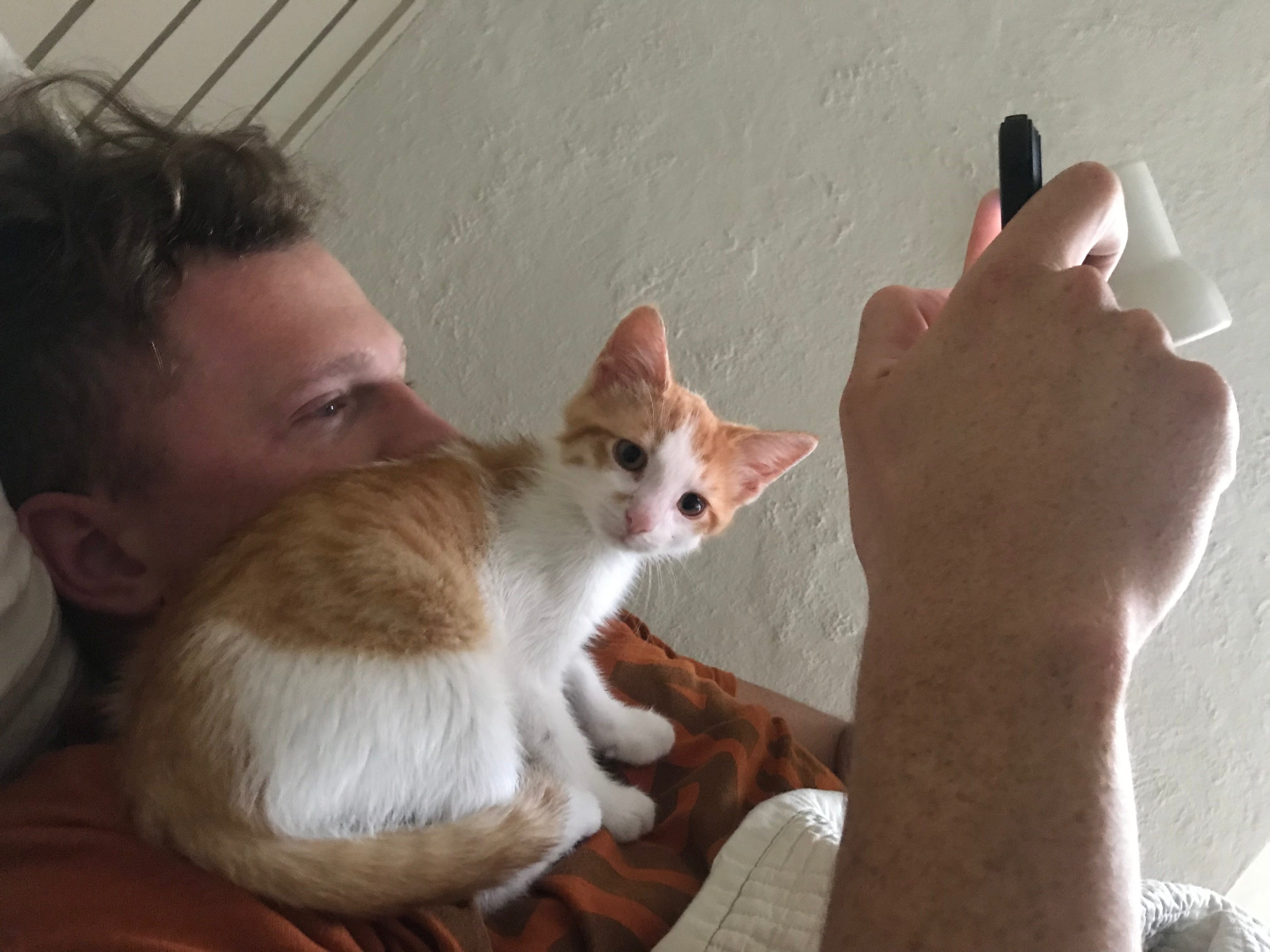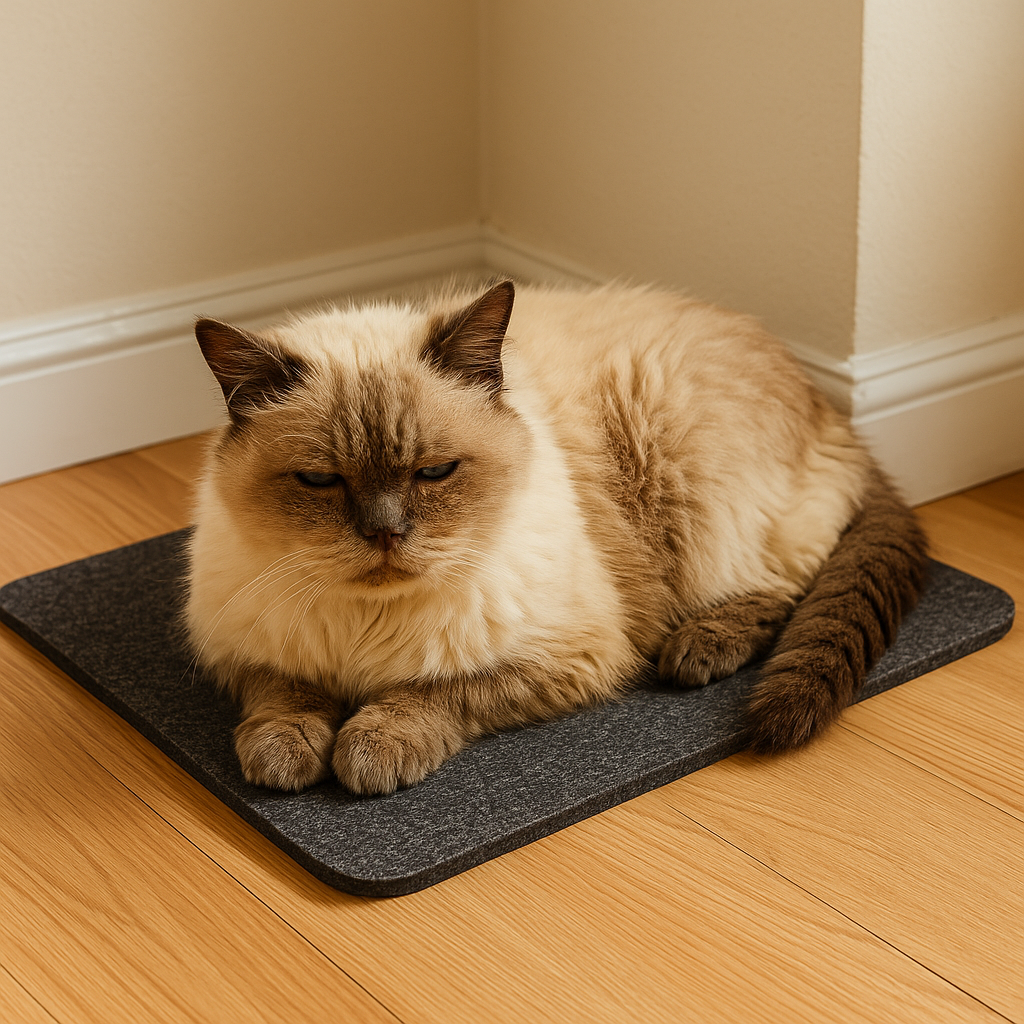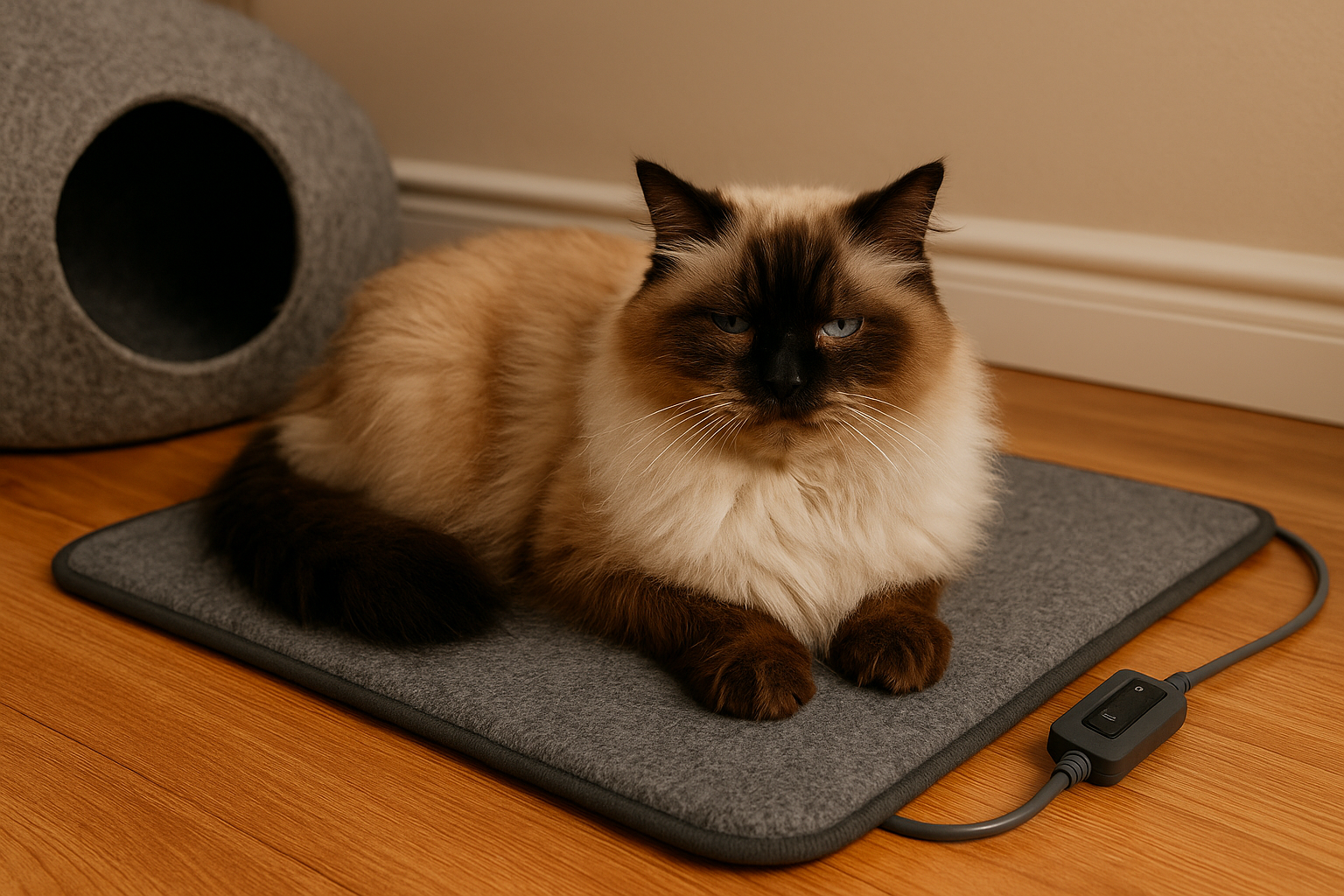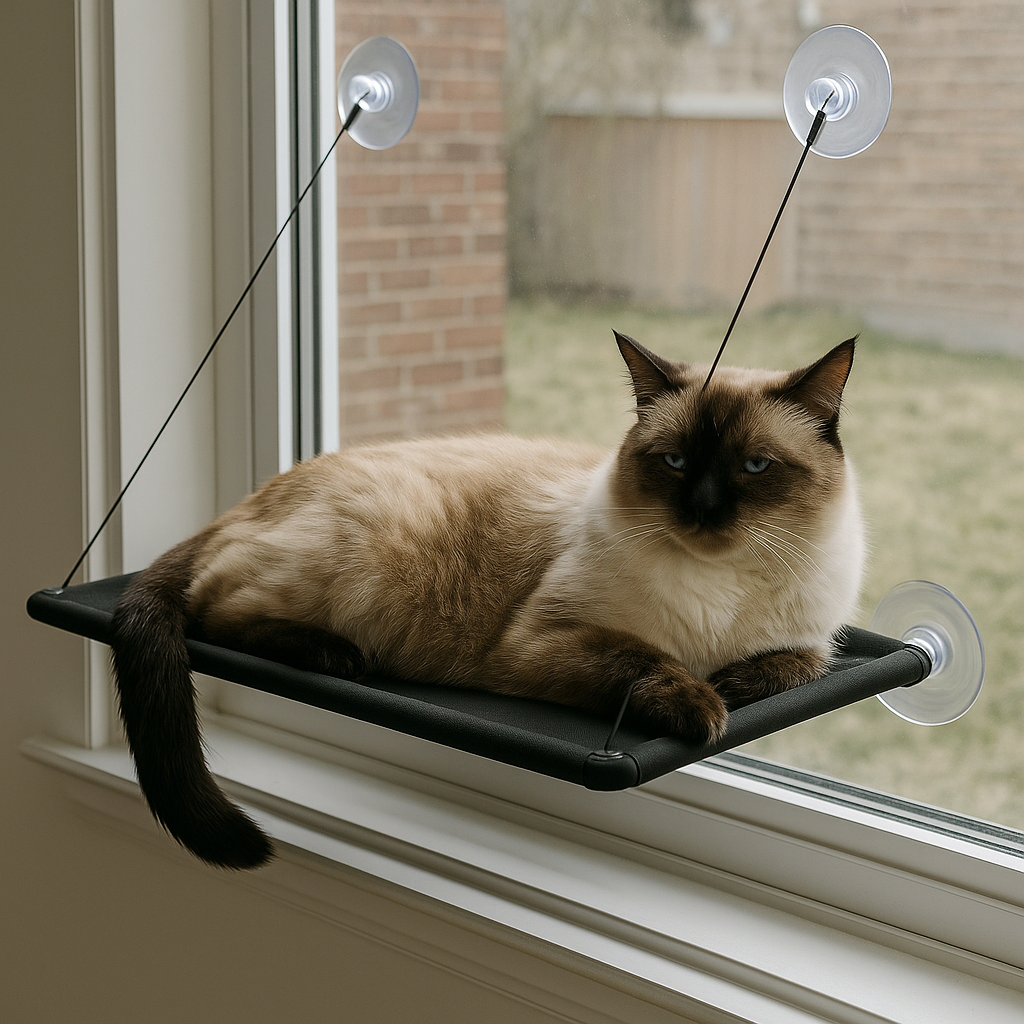Cat Anxiety 2025: Signs, Causes & How to Calm Your Cat 🐱

In this article
Cat Anxiety 2025: Signs, Causes & How to Calm Your Cat 🐱
By Dr. Duncan Houston BVSc
Cats are known for their independence and calm demeanor, but just like humans, they can experience anxiety. Anxiety in cats can stem from changes in their environment, health issues, social stress, or a lack of mental stimulation. Recognizing the signs early and taking steps to address the cause can greatly improve your cat’s wellbeing.
🔹 Signs of Anxiety in Cats
Cats communicate stress in subtle and sometimes overt ways. Watch for the following signs:
-
Changes in Appetite – A stressed cat may eat significantly more or less than usual.
-
Excessive Grooming – Over-grooming can create bald spots or sores, often due to anxiety.
-
Increased Aggression or Fearfulness – Sudden irritability, hissing, or swatting may indicate stress.
-
Excessive Vocalization – Persistent meowing, yowling, or other vocal behaviors can signal anxiety.
-
Inappropriate Elimination – Cats may urinate or defecate outside the litter box when stressed.
-
Increased Hiding – Retreating to secluded spots more often is a common coping mechanism.
-
Pacing or Restlessness – Repetitive pacing or constant movement can reflect nervous energy.
Recognizing these behaviors early is crucial for addressing anxiety before it escalates into more severe behavioral or health problems.
🔹 Common Causes of Anxiety in Cats
Understanding why your cat is anxious helps in managing the stress effectively:
-
Changes in Environment – Cats are creatures of habit; moving homes, new furniture, or renovations can be unsettling.
-
Illness or Pain – Cats may become anxious if they are unwell or experiencing discomfort.
-
Loss or Addition of Family Members – The loss of a companion or the introduction of new pets or humans can trigger anxiety.
-
Lack of Stimulation – Cats need mental and physical engagement. Boredom can quickly turn into stress and anxiety.
🔹 Ways to Reduce Anxiety in Cats
There are several strategies to help your cat feel calm and secure:
1. Provide a Safe Space
Ensure your cat has a quiet, comfortable retreat where they feel secure. This could be a cozy bed, a cardboard box, or a designated room.
2. Maintain Routine
Cats thrive on consistency. Feeding, playtime, and litter cleaning should happen at regular times to provide a sense of security.
3. Offer Enrichment
Toys, scratching posts, puzzle feeders, and interactive play provide mental stimulation and reduce boredom-induced stress.
4. Positive Socialization
Gradual and positive exposure to people or other pets can help your cat feel comfortable over time. Reward calm behavior with treats or affection.
5. Gentle Handling
Avoid forcing your cat into situations they dislike. Let your cat approach new experiences at their own pace.
6. Pheromone Products
Products like Feliway mimic natural feline pheromones that signal safety. These can help reduce anxiety and promote calm behavior in stressful situations.
🔹 Training Techniques
Behavior modification techniques can help your cat learn to cope with stressors:
1. Counter-Conditioning
This method changes your cat’s emotional response to a stressor. For instance, if a cat fears visitors, having visitors give treats can create a positive association.
2. Desensitization
Gradual, controlled exposure to the source of anxiety teaches the cat that the stimulus is not threatening. This should always be done slowly and carefully to avoid overwhelming the cat.
🔹 Medications for Anxiety
Medication is generally a last resort and should only be used under veterinary supervision. Common options include:
-
Fluoxetine (Prozac) – Often used for general anxiety or compulsive behaviors.
-
Clomipramine (Clomicalm) – Used for anxiety and stress-related behaviors.
-
Gabapentin – Can help reduce anxiety, particularly in cats stressed by travel or vet visits.
-
Alprazolam (Xanax) – Sometimes used short-term for situational anxiety.
Always consult your veterinarian before giving any medication. Monitoring for side effects is essential, and your vet can recommend proper dosage and duration.
🔹 Seek Professional Help
For severe or persistent anxiety, a veterinary behaviorist can provide a comprehensive plan combining:
-
Behavior modification strategies
-
Environmental adjustments
-
Medication (if necessary)
Early intervention can prevent anxiety from escalating into destructive or harmful behaviors.
✅ Conclusion
Cats, like humans, can experience anxiety for a variety of reasons. Recognizing the signs and understanding the causes are the first steps toward helping your feline friend feel secure and happy. Through environmental enrichment, gentle handling, routine, and, if needed, professional support, you can significantly reduce your cat’s stress and improve their overall wellbeing.








